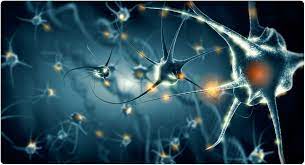Memory loss, often associated with aging and cognitive disorders, need not be an inescapable fate. With proactive lifestyle changes, you can take substantial steps to prevent or delay its onset. In this article, Evoke Neuroscience unveils key strategies that can help preserve memory function, enabling a more fulfilling and independent life as the years pass.
1. Eat Healthily
A nutritious diet serves as the cornerstone of maintaining optimal cognitive function. Certain diets, such as the Mediterranean diet, rich in fruits, vegetables, lean protein, and healthy fats, have been shown to protect against cognitive decline. Reducing your intake of saturated fats and refined sugars, which have adverse effects on brain health, can also contribute to preserving memory.
2. Regular Exercise
Evoke Neuroscience Physical activity holds significant benefits for brain health. Regular exercise enhances memory and thinking skills by improving blood flow to the brain. Engaging in routine physical activity not only strengthens the body but also builds up the brain’s cognitive reserve, helping to shield against memory decline.
3. Mental Stimulation
Challenging your brain through mental stimulation is a powerful tool for preserving memory. Engage in activities that stretch your cognitive abilities, such as puzzles, reading, writing, or learning to play a musical instrument. Lifelong learning and consistent intellectual stimulation have been linked to improved brain health and a delayed onset of cognitive decline.
4. Quality Sleep
Quality sleep is a critical component of memory consolidation, particularly for adults. Maintaining a regular sleep pattern promotes the formation and retention of memories. Chronic sleep deprivation can impair memory function, so it’s crucial to prioritize adequate and restorative rest.
5. Regular Check-Ups
Regular medical check-ups play a pivotal role in the early detection of memory issues. Mental health assessments can help identify memory loss in its early stages, enabling timely intervention and improved management. Additionally, effective management of chronic conditions like diabetes, high blood pressure, or depression can contribute to the prevention of memory loss.
6. Social Engagement
Staying socially engaged is another vital aspect of maintaining mental fitness and memory preservation. Active participation in social activities, maintaining close relationships, and regular interaction with loved ones or involvement in community events can sharpen your cognitive faculties. Social engagement stimulates your brain, helping to keep your memory intact.
In conclusion, Evoke Neuroscience memory loss is not an inevitable part of the aging process. By adopting these proactive strategies into your daily life, you can empower your memory and delay its potential decline. A healthy diet, regular exercise, mental stimulation, quality sleep, routine check-ups, and active social engagement collectively form a comprehensive approach to preserving your cognitive well-being. Remember that every effort you make today can contribute to a brighter and more memory-rich future.
